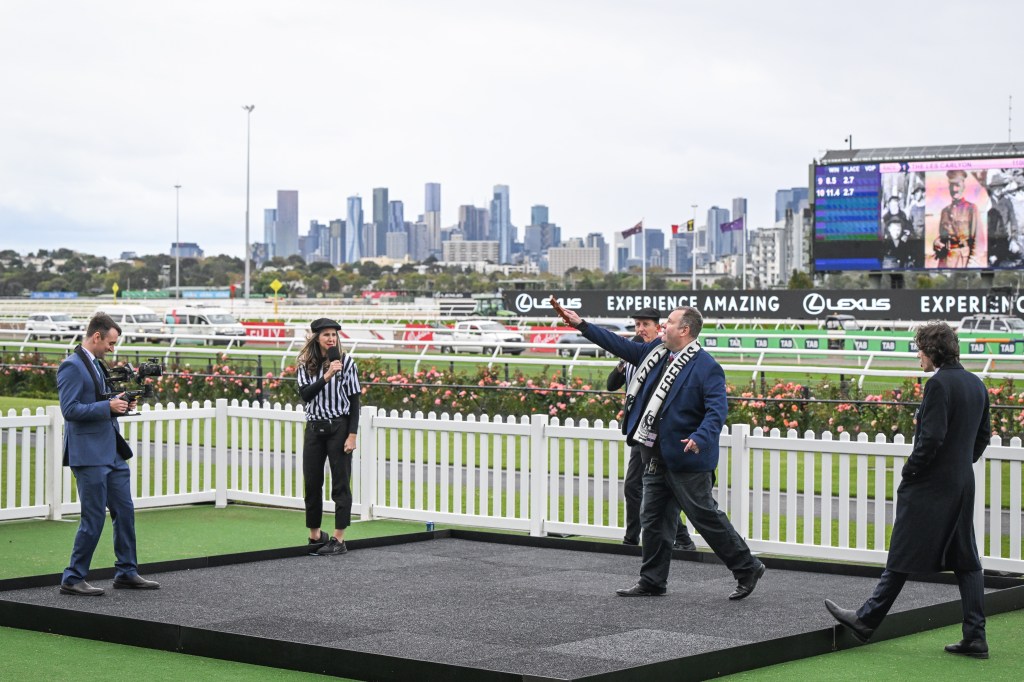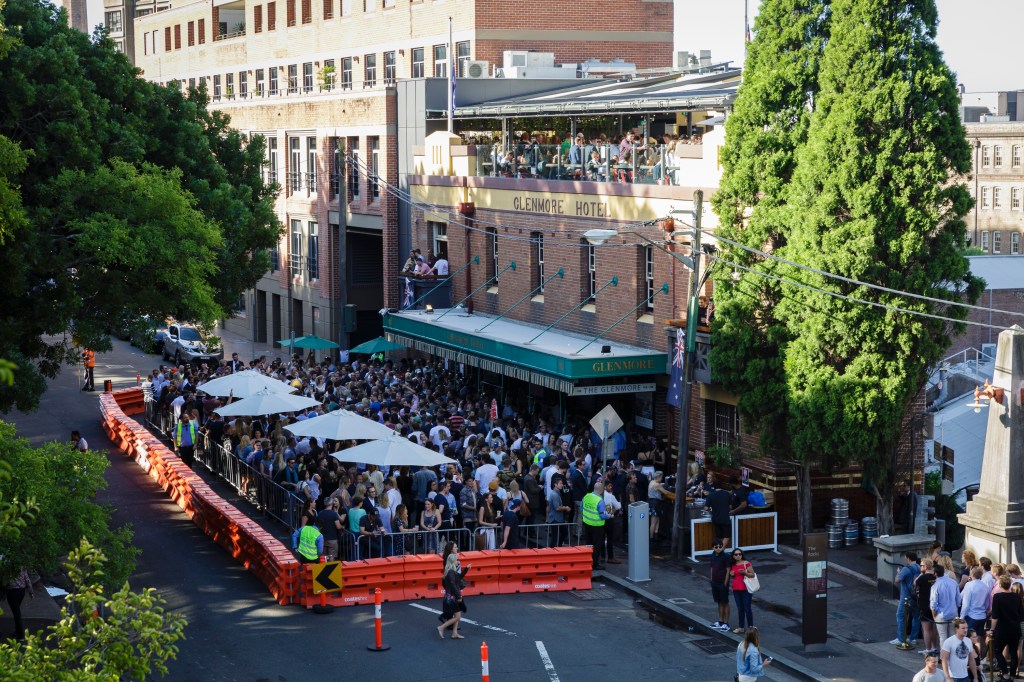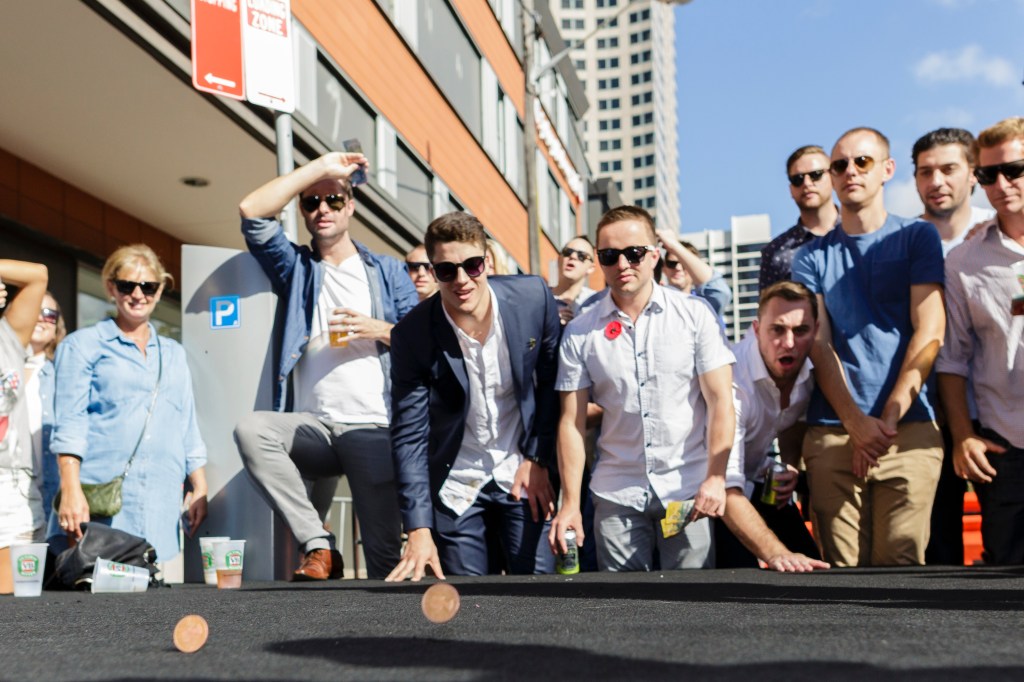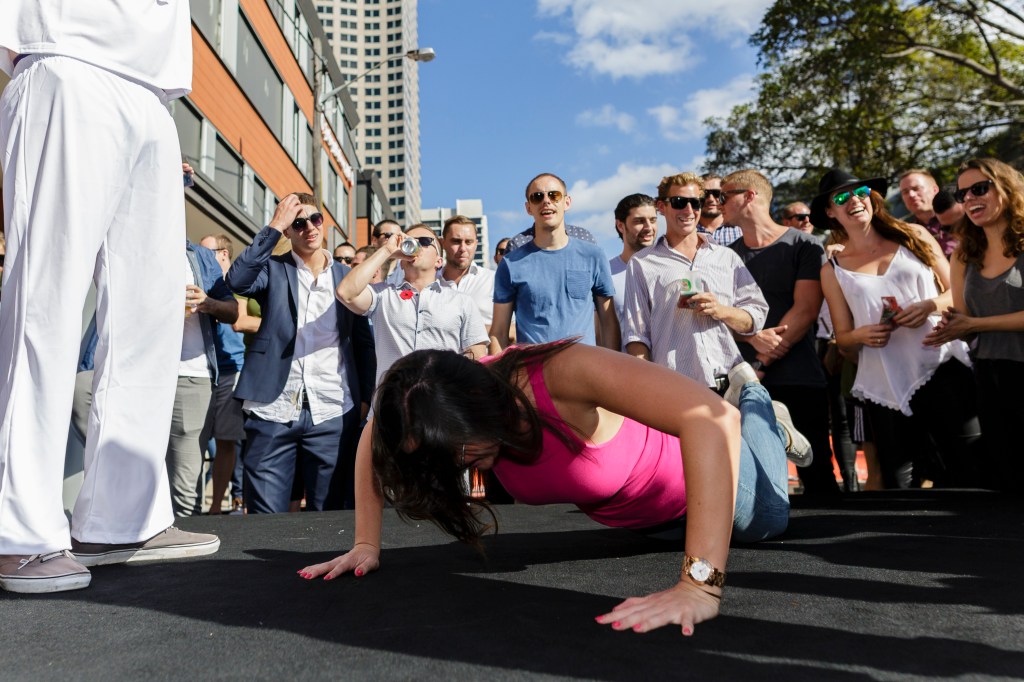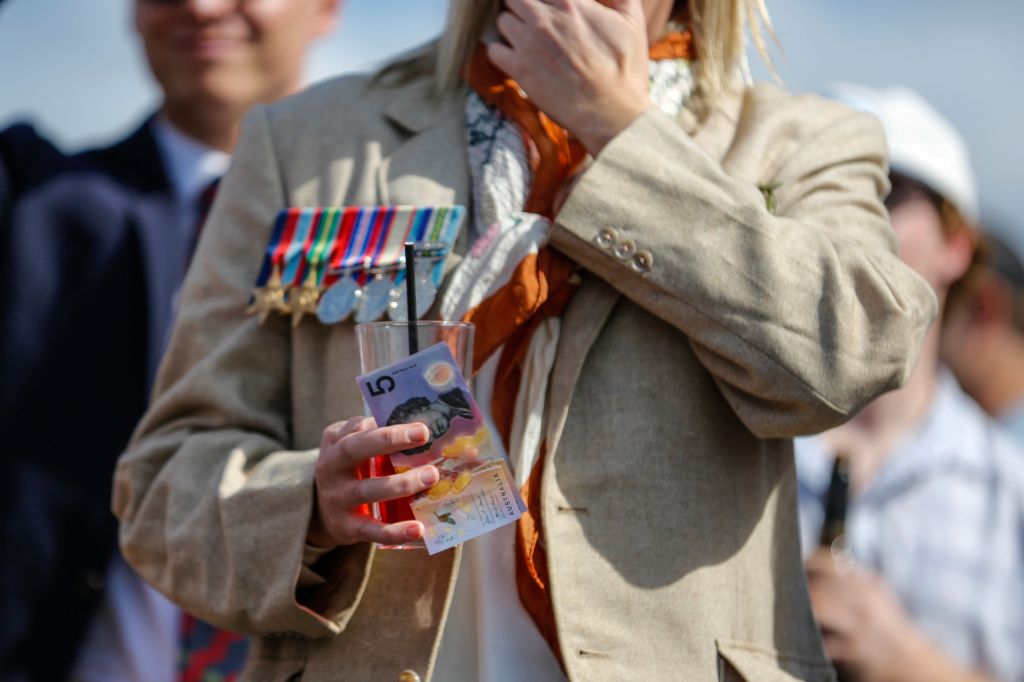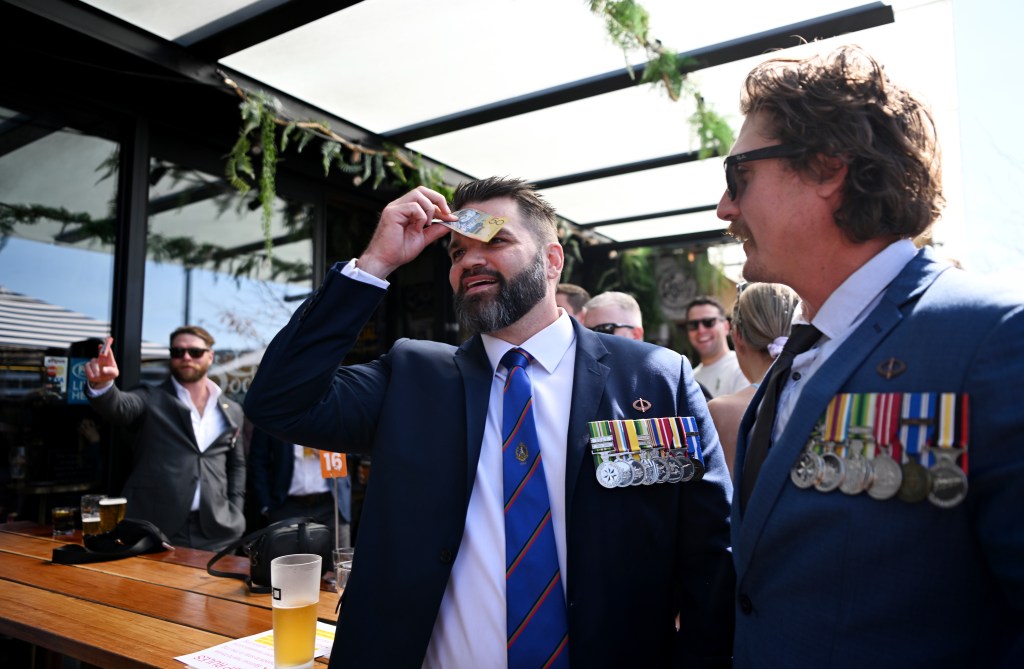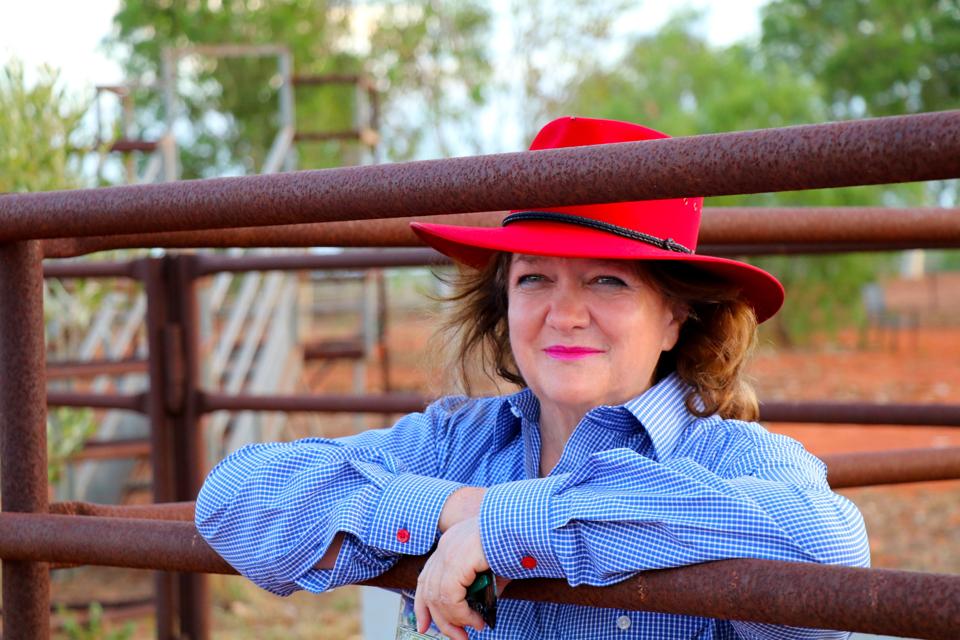Illegal every other day of the year, two-up, one of Australia’s most iconic traditions returns on April 25. For a few chaotic hours after the dawn service, pubs and RSLs across the country fill with punters, pennies, and the familiar cry: “Come in, spinner!” Here’s what you need to know about the Anzac Day favourite.
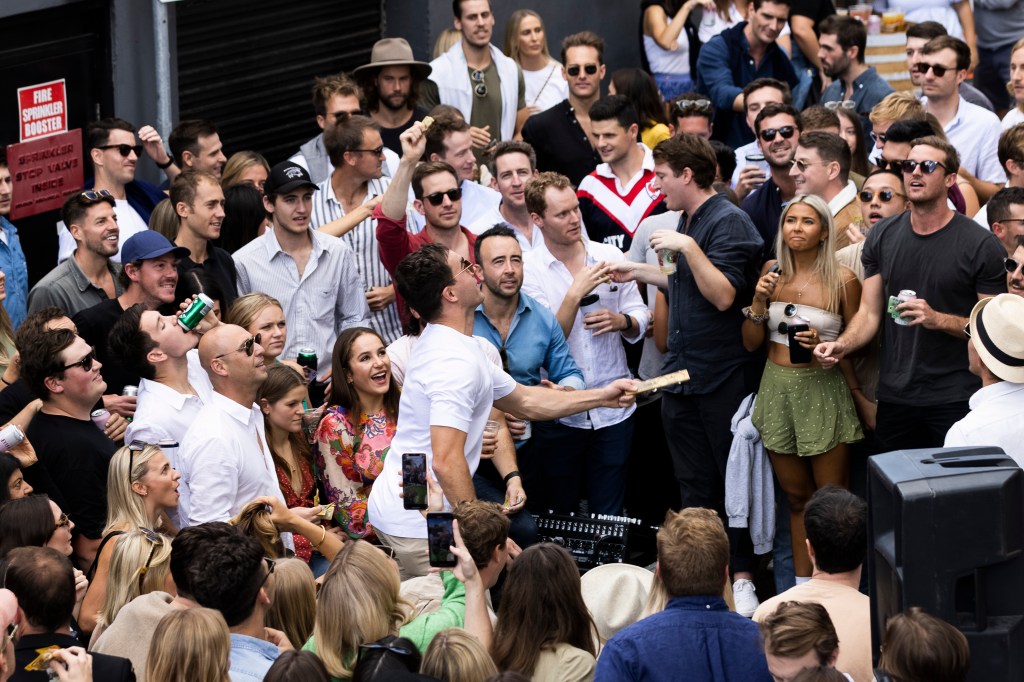
So how did a diggers’ pastime become a national institution?
Two-up began in the bush and back alleys of colonial Australia, evolving from a simple coin toss brought over by Irish and English settlers. It spread through goldfields and convict camps, often played under the watch of a lookout for the cops.
But it was on the battlefields of World War I that the game became legend. Diggers flipped pennies in the trenches between battles. When they returned, they brought the ritual home. And on Anzac Day, it lives on.
What are the rules of Two-up?
The rules are simple, but the energy is anything but.
A “spinner” stands in the centre of the ring and tosses two pre-1939 pennies off a wooden paddle called a kip. The crowd – known as the “school” – places bets on whether the coins will land on:
- Heads (both coins heads up)
- Tails (both tails)
- Odds (one of each – which is a no result, toss again)
Before the first throw, the spinner must place a bet – usually on heads – matched by someone backing tails. The money is held by the boxer, who manages the centre bets, calls the action, and ensures everything runs square.
Around them, the crowd places side bets with one another. Cash only. Handshake agreements. So you might see people punting $5, $50, or $100 notes, held high in the air. Find a mate or a stranger, agree on heads or tails, and hold the money until the coins fall.
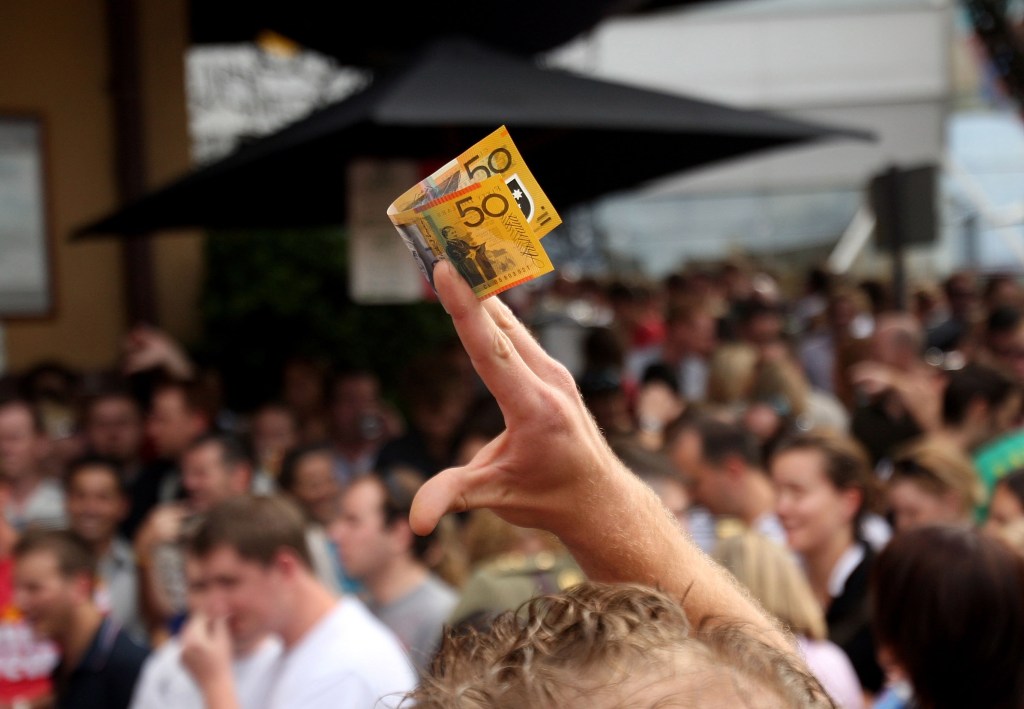

Why it’s legal on Anzac Day
For most of the year, two-up is banned under respective state gambling laws. It’s considered unregulated gambling – and without a permit, it’s off-limits.
But once a year, the government looks the other way. Or more accurately, it makes it official.
Anzac Day – April 25 – is the national exception, recognising two-up’s wartime roots and its role in honouring service, sacrifice and mateship. Every state and territory permits it in some form on this day (some more than others).
- In New South Wales, two-up is also legal on Victory in the Pacific Day (August 15) and Remembrance Day (November 11) – but only after 12pm. The Gambling (Two-Up) Act 1998 even protects the tradition in law.
- The outback town of Broken Hill gets a permanent pass – the only place in the country allowed to run games year-round due to its deep historical ties to the game.
- In Victoria, Queensland, South Australia, and Tasmania, it’s permitted only in RSLs or venues affiliated with veteran organisations – and usually only with approval from an official sub-branch.
- In Western Australia, it’s the most tightly controlled. Even on Anzac Day, clubs need a specific permit from the Department of Local Government, Sport and Cultural Industries.
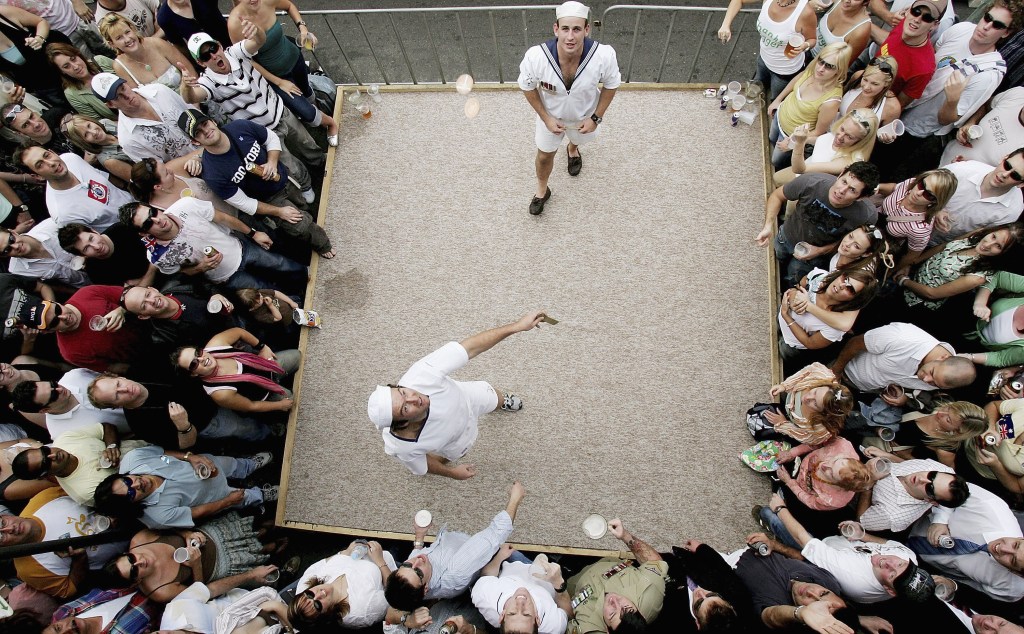
Where to play
Whether you’re in a city pub or a surf club on the coast, chances are there’s a ring chalked out and a kip ready by midday.
Some of the biggest games take place at Flemington Racecourse, The Glenmore in The Rocks, The Courthouse Hotel in Newtown, The Clovelly Hotel and Brisbane’s Caxton Hotel.
